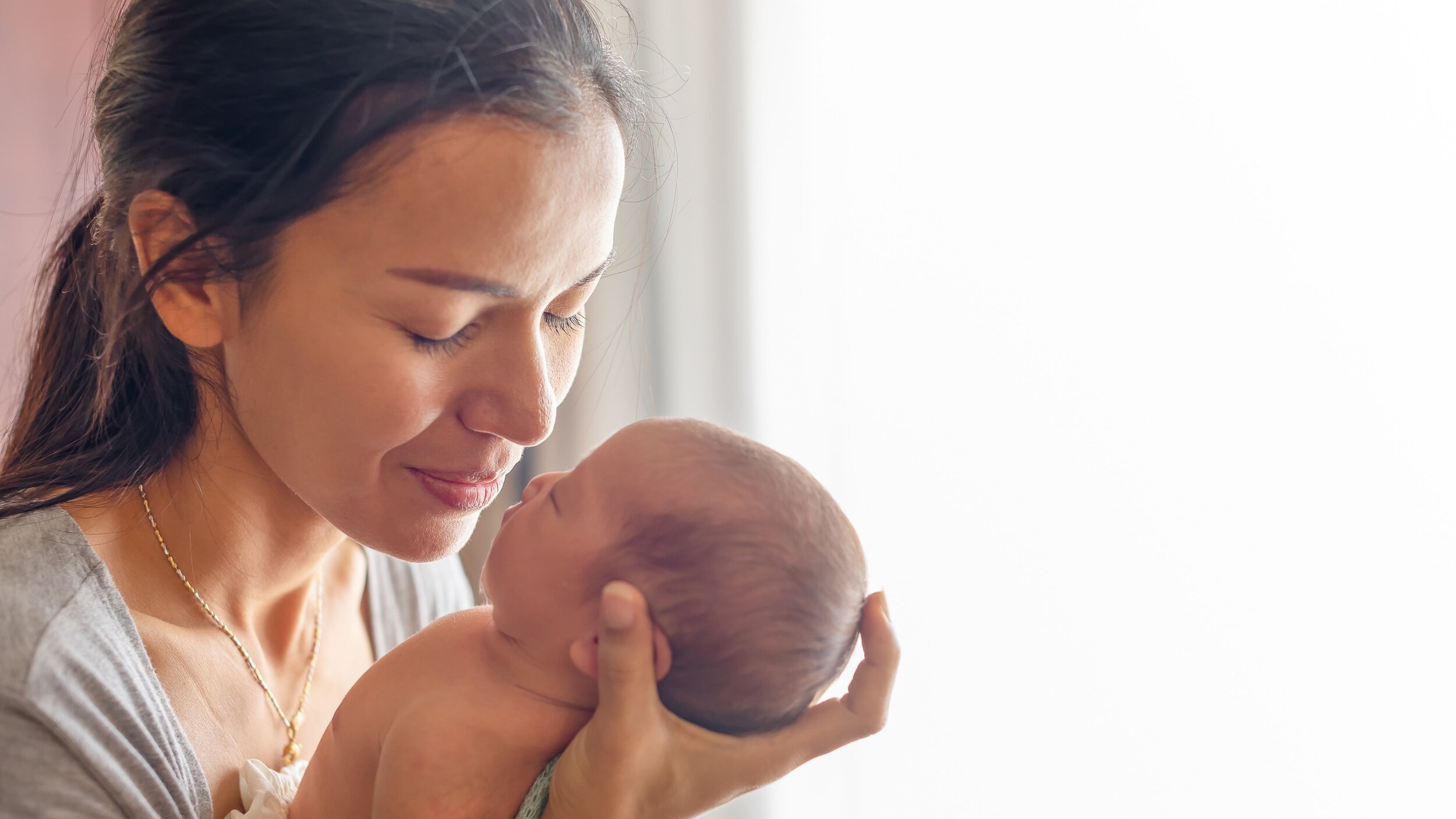
Newborn toolkit
what new parents need to know
Congratulations on the birth of your new baby.
The first days with your newborn can be wondrous and exciting. New parents often describe it as the most joyful, memorable, and sometimes even the most terrifying time of their life.
For nine months you’ve been waiting for your little one to arrive. So now that you’ve got him or her here, what do you do?
Ensuring your baby has the best possible start in life is our top priority. Leading Steps Paediatricians will check over your baby, answer your questions and are on call day and night so consultant level care is available when you need it.
Our newborn toolkit helps you know what to expect in the first days and weeks after birth including:
· Newborn screening tests
· Normal development
· Bonding and attachment
· What to do when something isn't right

Newborn Screening tests
Newborn Screening Tests
Although the majority of newborns are perfectly healthy, a small minority have disorders or illnesses that aren’t always recognisable at birth.
There are three primary screening tests that are recommended in order to assist your doctor in identifying signs of these.
If the disorders or diseases are picked up early with screening tests, most of these infants can be treated and will do well.
3% of children have an abnormality at birth, often minor, which won’t have been picked up on the antenatal ultrasound screening.
Heel Prick (Neonatal Screening Test)
The heel prick test is done between 48 and 72 hours after delivery to detect more than 30 rare genetic disorders.
A few drops of blood are collected via a small prick of the baby’s heel.
If you’re concerned about your baby experiencing pain during the test, it might be a good idea to contrast the short time minor discomfort with the potential long-term benefits of picking up on an illness immediately.
Heart Health Test
TAn oximeter is used to check that newborn oxygen levels are normal to check that the heart and lungs are working well. This is typically done on day two.
Developmental Dysplasia of the Hip (DDH).
DDH affects approximately 1 in 700 babies, with higher risk in some circumstances such as a family history.
Your doctor will check for DDH within the first day or two after birth examining each hip for signs of dislocation.
Sometimes a baby may have DDH that doesn’t present at birth, so the doctor will examine for it again at your six week check.
Six Week Check
The six-week check is an important time for your Paediatrician to examine your baby’s vision, heart and developmental progress.
This is highly recommended in order to ensure that the newborn is growing normally and developing a reasonable routine.
It is also the time when many certain problems such as hip dysplasia and cardiac defects become apparent.

Newborn sleeping, feeding and crying
Biological Basics
Feeding.
Getting the right calories and nutrition is essential for growth and development.
Whichever way you feed your baby they will need about six to eight feeds every 24 hours.
Breastfeeding is a learned skill for the mother and the baby.
Midwives and lactation consultants will give you plenty of advice and support to get you off to the best start.
Many hospitals offer support services after you leave and there are many community support services available. Ask your paediatrician for more information if needed.
Social media can offer a great resource for new parents, and some companionship to share problems and ideas.
However it’s easy to be overwhelmed by the seemingly convincing but ultimately unhelpful and sometimes damaging advice on social media and at parents’ groups.
It’s best to develop your own style of parenting based on your experience and sensible and trusted information.
From a paediatric point of view the most important thing is that your baby is growing and thriving, and that you are developing in well-being, happiness and confidence in your role as a mother.
Sleep.
Every baby is different but you can expect your baby to sleep between feeds for about two to three hours.
It’s common for them to stir a little bit after a short time and they may need some help to resettle.
This pattern goes through the night as well, so your baby will likely wake a few times each night for a feed and resettle.
By the time the baby is six weeks old they may sleep for longer stretches.
The parent doing the feeding (breast or bottle) will need extra care and support, especially during these early days.
Crying.
Some babies cry a lot, while others don’t cry very much at all.
It’s normal for babies to cry for about two hours in total a day, with crying peaking at 6-8 weeks.
About 10 percent of babies cry more than three hours a day.
Babies cry to communicate, they might want a cuddle, to be feed, to be stimulated or played with, or they may be overtired and letting you know they need a sleep. Sometimes they cry for seemingly no reason. All of this is normal and over time you’ll begin to understand your baby’s cues.
If you have concerns please talk to your midwife or paediatrician.

Newborn Development
Development
Babies grow, learn and develop through relationships, interacting with carers and play. Your newborn's head will be wobbly at first.
But within the first few months, most babies can face straight ahead while lying on their backs and lift their heads while lying on their tummies.
Infant development begins at birth. It helps to know normal infant development milestones from birth to 3 months so if something's not right it can be picked up early.
A lot happens during your baby's first three months. Most babies reach certain milestones at similar ages.
While babies grow and develop at their own pace, talk to your paediatrician or GP if you notice that your baby:
doesn’t seem to see things or hear properly
doesn’t move or use both arms and/or legs
can’t hold their head up by the time they’re 3-4 months old
has an unusual cry – for example, a high-pitched squeal
is persistently crying for more than three hours in total a day, especially after 3-4 months.
doesn’t look at you
isn’t interested in what’s going on around them
doesn’t consistently respond to sounds
Vision.
Your baby will probably focus on your face while feeding.
Soon your baby may begin to examine more complex designs, along with various colours, sizes and shapes. Y
ou may notice your baby studying his or her hands and feet.
By age 3 months, your baby may be easily distracted by an interesting sight or sound.
Communication.
Newborns are sensitive to the way you hold, rock and feed them.
By age 2 months, your baby may smile on purpose, blow bubbles and coo when you talk or gently play together. Your baby may even mimic your facial expressions. Talking and interacting with your baby is very important - right from birth.

Bonding with your baby
-
Bonding Basics
As important as it is to care for your newborn’s physical needs, it’s equally important to begin to get to know your baby and provide for their psychological and emotional needs.
Babies need attention and affection; they need to feel safe and loved. It is important that you spend time in bonding activities such as holding your baby skin to skin, looking into their eyes, talking and singing to them, and cuddling them.
This allows your baby to learn to love, trust and feel secure around you; emotional milestones that are the foundations for development into a psychologically healthy human.
-
Taking care of yourself
In this exhausting, overwhelming, yet thrilling time of your life, it is easy to forget that you yourself need looking after as well.
Caring for yourself will help you recover from childbirth and care for your baby.
It is highly recommend to have someone to help you out around the house, to cook and clean and offer support.
Eat sustaining and nourishing foods, drink plenty of water, sleep when you can, get outside when you can.
If you’re feeling stressed or sad, practise relaxation exercises or talk to a friend or your family doctor about it.
Taking care of yourself ensures you can take care of your newborn.
Remember, looking after your family includes looking after you.

What to
do when something isn’t right
-
When something's not right
Your baby may reach some developmental milestones ahead of schedule and lag behind a bit on others.
This is perfectly normal. There's typically no cause for concern.
It's a good idea to be aware of the warning signs, however.
Consult your paediatrician if you're concerned about your baby's development or you notice any red flags by age 3 months: -
Over the first few months
Contact your paediatrician if you notice any of the following:
• No improvement in head control
• No attempts to lift the head when lying facedown
• Extreme floppiness
• Lack of response to sounds or visual cues, such as loud noises or bright lights
• Inability to focus on a caregiver's eyes
• Poor weight gain
• Doesn’t respond to sounds
• Doesn’t move both arms and/or legsRemember that every baby is unique — but your instincts are important, too. The earlier a problem is detected, the earlier it can be treated.
-
The first six weeks
The first six weeks are an important time for the baby and yourself. During this time you are encouraged to contact your paediatrician direct if you have any worries or concerns.
Midwives at the hospital are also available to check you and your baby and offer support and education at the regular baby checks.
